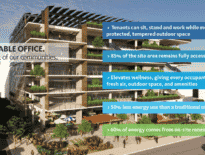A new study of fully-affordable housing developments by economists with online discount brokerage Redfin has found that, counter to popular concerns, affordable housing construction does not hurt nearby property values.
The study examined property prices in 26 of the nation’s largest metro areas and found that, in 18 of the 26, the construction of 100 percent low-income housing developments had not appreciable impact on nearby property prices and in four – Boston, Philadelphia, Washington, D.C. and Charlotte, North Carolina – home prices near fully affordable projects actually increased after the developments were built.
“For children in low-income families, living in a neighborhood with less poverty can have a big impact on mental and physical health as well as long-term earnings throughout their life,” Redfin senior economist Sheharyar Bokhari said in a statement. “But economically integrated neighborhoods – those with low-income housing near homes for middle- and high-income households – are so rare because development of low-income housing often faces strong opposition from neighbors who are concerned that the project will lower their home values. These perceptions have made socio-economic segregation even more pervasive throughout the United States, further exacerbating social, racial and housing inequalities.
Most of the new housing built in Greater Boston in the last 10 years has been concentrated in only a few communities – Boston, Cambridge, Watertown and Chelsea, among others – but the study compared home prices such a very granular level, Bokhari said in an subsequent email to Banker & Tradesman, that the price increases occurred over even a few blocks of distance from a fully-affordable development.
Homes in the Boston area saw a 30.7 percent price increase after an affordable housing development was built nearby, the study found. The study analyzed 14,533 homes in Greater Boston with a median sale price of $445,000 among those near low-income housing.
“Outside of the core, we see [affordable developments] in places like Lowell, Lawrence or down in Duxbury, but none in suburbs like Weston or Lexington. The evidence that these projects don’t adversely affect home values should encourage the restrictive suburbs to open up to development!” Bokhari said.







